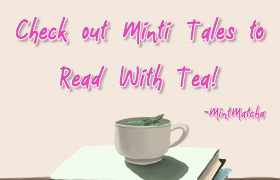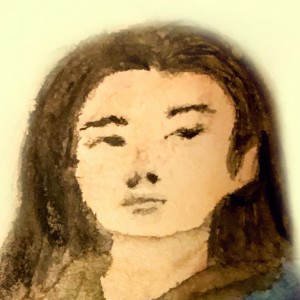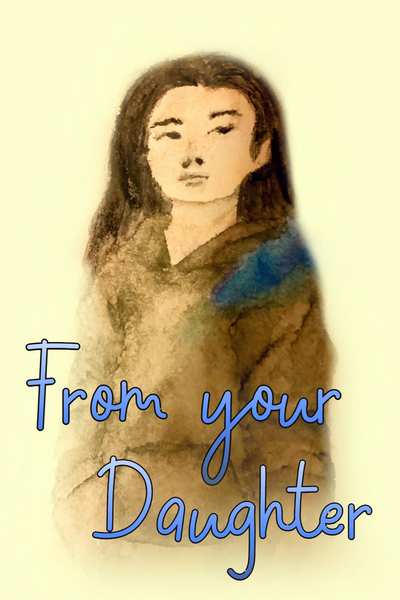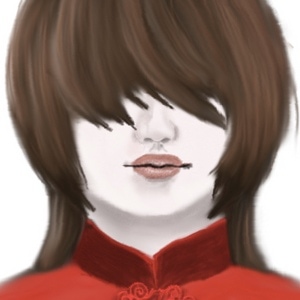To my birth family,
Allow me to introduce one of my university friends. Her name is Lisa, and she’s someone I met at first year orientation.
She was standing off to the side, looking rather shy next to a caucasian girl with curly red hair. The two of them were whispering to each other, as if deciding whether or not they should mingle with the others. Given that I was just as awkward a person trying to make friends, I ended up going over to introduce myself.
“Hi,” I introduced myself. “I’m Lillian from the Arts program.” After the basic introductions I learned that Lisa and her friend Jackie were also in the Arts program, quickly bonding over our shared shyness. Turned out we three were all living in the same residence, so they met the friends I’d already made on my floor, and we ended up eating dinner together.
Lisa is an interesting person. She’s quiet and shy like me, but once you get to know her she’s really outgoing and talkative.
Like me, Lisa is also Chinese, but she was born here in Canada, making her a CBC. Since meeting our conversations have often steered toward talking about our families. I assumed Lisa to have been a CBC, given that her english was fluent and her attire very subtle (most international students I know wear designer brands or over-the-top fashions). She was born in Toronto where she attended a school with many other CBCs.
She’d never met an adoptee before, so I became her first impression of what Chinese adoptees are like. I think she was pretty lucky to meet someone genuinely interested in her birth culture as opposed to an adoptee who outright absolutely rejected it. While there’s no problem with the latter adoptees, I don’t know how our friendship would’ve gone had I refused to be open to Chinese culture, since Lisa still includes many of her family traditions in her life.
Lisa was born to two Chinese parents, first generations born in southern China, but further north than where I’m from. Since she grew up in a very Chinese community, however westernized, many of her friends growing up were raised similarly to her. They ate Chinese home cooked food and listened to Chinese tunes. They also speak some Chinese dialect or another among the family.
Now, it’s one thing to introduce your white friend to Chinese culture, but what about introducing your Chinese friend to all the good things she missed out on?
She and our other Chinese friends have agreed that I am the exact definition of a “banana,” which if you don’t know is a slang term referring to an asian person who acts western, ergo being “yellow on the outside and white on the inside.” (It’s a joke that you need the asian pass to use, otherwise it’s just plain rude.) We joke about me being the most “banana” of us all, since I don’t have asian parents to speak of, but in all seriousness I don’t have a “traditional culture” that corresponds with my heritage. Thus, Lisa’s become one of my tour guides to all things asian, someone to help me rediscover my roots, if you will.
One of the first things Lisa shared with me was Chinese music. She speaks Cantonese and Mandarin, so she has a wide range of pop media she can consume. She played some of her childhood songs, most of them in Cantonese. Before then I hadn’t heard Chinese songs that weren’t pop, rock, or history drama soundtracks. It was a very enlightening experience.
Lisa also shared with me bits of her mom’s home cooking. Though she says she’s not as creative she’s made fried rice and crab, shrimp dumplings, and this green vegetable called gai lan. She cooks buckwheat noodles with soy sauce, congee with pork, and she even knows how to make boba tea! In my mind she’s practically a walking cookbook. I could never measure up to her knowledge of asian cuisine.
I think it’s pretty cool that Lisa and I have our Chineseness and lack thereof to bond over. I’ve never had any asian friends who would share part of their heritage with me, though that was mostly due to the fact that all my Chinese friends before university were fellow adoptees, and we never discussed our adoption.
But I’ve talked about adoption with Lisa. One night we were up after dinner and I mentioned how I wished I knew who my birth parents were. Since Lisa lives with her birth parents she told me that I didn’t miss much. I get that living with your birth parents has its own problems, but when I explained that it still means that there’s a part of me I probably won’t be able to recover, she understood that all that glitters is not gold. Having adoptive parents whose home culture is western majority (caucasian Canadian) is great and all, but you’re still left with a void of not knowing who you are.
I think you’d like to meet Lisa. Though she can be stubborn at times I think most Chinese people are like that. If there’s one thing that exists cross-culturally it’s how stubborn Chinese people are. We believe in our values whole-heartedly and stand up for ourselves. Whether we’re right or not is beside the point, as I think it’s amazing that a nation and its descendents can hold onto themselves throughout time and space.
Lisa and I are examples of that. Though we have different life stories we share the fact that we care about our heritage. We see it as part of our identity and acknowledge that it has influence in shaping who we are as people. Her acceptance of her Chinese heritage is something I greatly respect, though I realize that it hasn’t always been easy to do so.
But that’s for another letter.
Sincerely,
Lillian












Comments (0)
See all